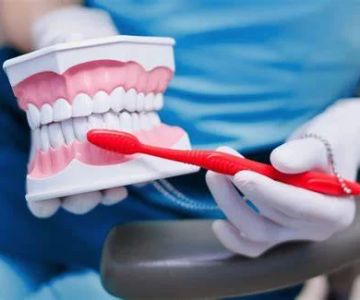Understanding the Impact of Poor Oral Hygiene on Overall Health
Maintaining good oral hygiene is essential not only for a bright smile but also for overall health. Neglecting oral care can lead to a range of health problems beyond cavities and gum disease. The mouth is a gateway to the body, and bacteria thriving due to poor oral hygiene can contribute to serious systemic conditions. This article explores various health conditions caused by poor oral hygiene and provides insights into prevention and treatment.
1. Common Oral Health Problems Linked to Poor Hygiene
Poor oral hygiene first manifests in the mouth with issues like dental plaque buildup, tooth decay, and gingivitis. Plaque is a sticky film of bacteria that forms on teeth and gums, and if not removed regularly through brushing and flossing, it hardens into tartar, which can only be professionally cleaned. Gingivitis, the inflammation of gums, is often the first sign of trouble, causing redness, swelling, and bleeding during brushing.
Unchecked gingivitis can progress to periodontitis, a severe gum infection that damages the soft tissue and destroys the bone supporting teeth, potentially leading to tooth loss. According to the Centers for Disease Control and Prevention (CDC), nearly half of adults aged 30 and older in the U.S. have some form of periodontal disease.
2. Cardiovascular Disease and Oral Health
Emerging research links poor oral hygiene with cardiovascular problems such as heart disease and stroke. The bacteria from infected gums can enter the bloodstream, triggering inflammation that contributes to clogged arteries and blood clots. Studies indicate that people with periodontal disease have a higher risk of heart attacks and other cardiovascular events.
For example, a landmark study published in the Journal of the American Heart Association revealed that individuals with gum disease had a 20% increased risk of developing heart disease. This connection highlights the importance of oral care in preventing life-threatening conditions.
3. Diabetes and Oral Health: A Two-Way Relationship
Diabetes and oral health problems often coexist, creating a challenging cycle. Poorly controlled diabetes can weaken the immune system, making it harder to fight infections including gum disease. Conversely, severe gum disease can affect blood sugar levels, worsening diabetes control.
Patients with diabetes are two to three times more likely to develop periodontal disease, which in turn can increase the risk of diabetic complications. Maintaining good oral hygiene is critical for diabetic individuals to manage their condition effectively.
4. Respiratory Infections and Poor Oral Care
Bacteria from the mouth can be inhaled into the lungs, leading to respiratory infections such as pneumonia, especially in vulnerable populations like the elderly or those with chronic lung conditions. Studies have shown that improved oral hygiene reduces the risk of respiratory infections in hospitalized or nursing home patients.
This link underscores the mouth’s role as a reservoir for harmful bacteria that can affect distant organs when proper oral care is neglected.
5. Pregnancy Complications Related to Gum Disease
Pregnant women with periodontal disease are at higher risk of premature birth, low birth weight, and pregnancy complications. Hormonal changes during pregnancy make gums more susceptible to inflammation, and untreated gum infections can release harmful chemicals affecting fetal development.
One documented case involved a woman who experienced preterm labor linked to untreated gum disease, emphasizing the need for dental check-ups during pregnancy.
6. Oral Hygiene’s Role in Preventing Chronic Systemic Conditions
Beyond the above conditions, poor oral hygiene has been associated with rheumatoid arthritis, certain cancers, and even Alzheimer’s disease. Chronic inflammation stemming from gum disease may contribute to the progression of these systemic illnesses.
Ongoing research continues to unravel these complex relationships, making it clear that oral health is integral to overall well-being.
Protecting Your Health Through Good Oral Hygiene
Simple daily habits like brushing twice a day with fluoride toothpaste, flossing, and regular dental visits play a vital role in preventing the health conditions caused by poor oral hygiene. Healthy eating, avoiding tobacco, and managing medical conditions also contribute significantly.
For tailored advice and comprehensive dental care solutions, consider consulting experts at Dentistry Toothtruth. Their experienced professionals provide personalized care aimed at maintaining your oral and overall health.







 Westgate Dental Arts3.0 (2 review)
Westgate Dental Arts3.0 (2 review) Coventry Family Dental4.0 (247 review)
Coventry Family Dental4.0 (247 review) Familia Dental3.0 (1028 review)
Familia Dental3.0 (1028 review) Dr. Daniel S. Fife, DDS4.0 (31 review)
Dr. Daniel S. Fife, DDS4.0 (31 review) Dentistry At Suburban Square: Michael I. Wollock, DMD4.0 (1228 review)
Dentistry At Suburban Square: Michael I. Wollock, DMD4.0 (1228 review) Comfort Care Dental4.0 (1156 review)
Comfort Care Dental4.0 (1156 review) The Importance of Oral Health Education During Pregnancy for a Healthy Pregnancy
The Importance of Oral Health Education During Pregnancy for a Healthy Pregnancy Why Skipping Dental Checkups Can Lead to Bigger Oral Health Problems
Why Skipping Dental Checkups Can Lead to Bigger Oral Health Problems Best Tips for Brushing Your Teeth Properly for Healthy Gums: Essential Techniques for Oral Health
Best Tips for Brushing Your Teeth Properly for Healthy Gums: Essential Techniques for Oral Health Advantages of Porcelain Dental Restorations
Advantages of Porcelain Dental Restorations How Can Diabetes Cause Tooth and Gum Problems? Preventing and Managing Oral Health Issues
How Can Diabetes Cause Tooth and Gum Problems? Preventing and Managing Oral Health Issues Healthy Habits for Promoting Good Oral Health and Hygiene: Tips for a Healthy Smile
Healthy Habits for Promoting Good Oral Health and Hygiene: Tips for a Healthy Smile